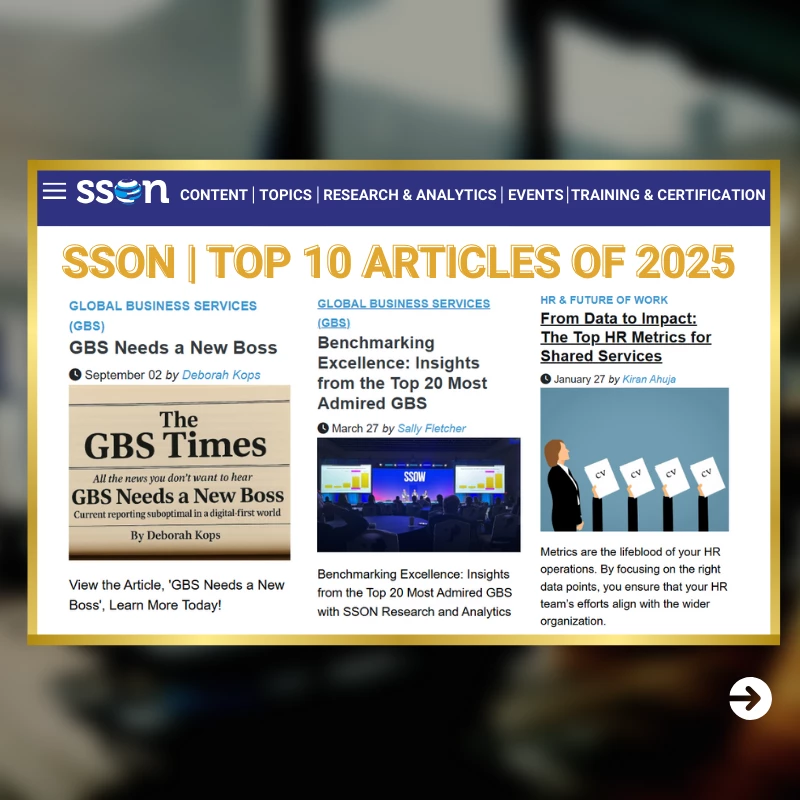Don’t Sleep through the Digital Opportunity
Add bookmark
If you sleep through the digital transformation in the Shared Services industry you'll miss out on these 5 positive effects.
Digitalization challenges us all. Those who sleep through it may miss out on opportunities, however. Digital transformation has 5 positive effects on the services industry:
1) You can ensure your success
For some, it sounds surprising but digitalization keeps Shared Services attractive. Let us take Germany as an example, with a high potential for innovation and the means to implement it. Many regard service costs in Germany as high – but digital innovation enables even more attractive solutions for your customers.
2) You can exploit synergies
Shared Services can create additional value for their customers especially when holistic processes meet innovative technologies. Bringing these two factors together makes you the driver of process optimization and digitalization initiatives. Since April 2019, for example, Siemens Global Business Services (GBS) has been set up "end-to-end," which means that all processes are viewed holistically, from start to finish, and, where appropriate, are seamlessly combined. Innovative digital technologies are systematically developed as platforms and made available throughout the organization. This enables us to fully exploit synergies and increase the development speed of innovations. "An end-to-end organigram is one thing - bringing it to life is the real art.“
3) You can concentrate on your core business
The key to successful digital transformation is consistency because it requires a high degree of stringency in order to be applied meaningfully. To achieve this, we all must concentrate on our core business and create a correspondingly versatile technological ecosystem that creates synergies and supports the service units optimally in their business. For us, such an ecosystem includes, for example, Robotic Process Automation and Business Process Management platforms and Big Data Analytics solutions. At Siemens Global Business Services, previously isolated innovation projects are thus systematically driven forward across the board and promising technologies are implemented and anchored in the organization.
4) You can create long-term benefits and transparency for your customers
Our customers rightly expect an increase in performance, each and every year. Not only by shifting tasks and optimizing working steps, but also by leveraging new concepts and solutions. It is like in the automotive industry: at a certain point the customer no longer wants to pay for owning a car, but for the mobility that comes with it. Through digitalization, we can do the same analogously in the service industry. We have a responsibility to actively promote innovative technologies in order to create long-term benefits for our customers. One of these advantages is certainly the new level of transparency for the customer: thanks to our many years of process expertise, we are able to identify optimization potential and pass it on to our customers.
5) You can make your employees fit for the future
Yes, new technologies are an important investment factor. But in the whole discussion about digital transformation the most valuable asset is all too often overlooked: our people. Despite all the transformation, one must never forget: "Services Business is People Business" – and any digitalization initiative is only as good as the people who drive it forward. After all, they are the experts with broad process knowledge, proximity to the customer and a good understanding of the market. Plus, they have the right innovation mindset. This position enables them to assess the opportunities and risks of new technologies and recognize their potential for our customers. In this way they can combine process expertise and digitalization initiatives and drive digitalization holistically and innovative.
But this is only possible if we promote and challenge our employees accordingly. According to a study by the McKinsey Global Institute (Skill Shift, Automation and the Future of the Workforce 2018), new technologies such as automation and artificial intelligence will drastically change the demands on employees' skills and knowledge. By the year 2030, the proportion of tasks requiring technical expertise will increase by a good 55%*. Over the same period, the need for emotional and social skills (24% increase*) and creativity (8% increase*) will also increase. Companies therefore have a duty to develop their employees and enable them to acquire these new skills. For this reason, Siemens Global Business Services (GBS) has invested in a variety of development opportunities for our employees worldwide. For example, we offer various learning and training opportunities from our own Siemens GBS Academy and analyze the internal employee surveys every three months and derive the need for action.
*Source: McKinsey Global Institute: Skill Shift. Automation and the future of the workforce. 2018.






















